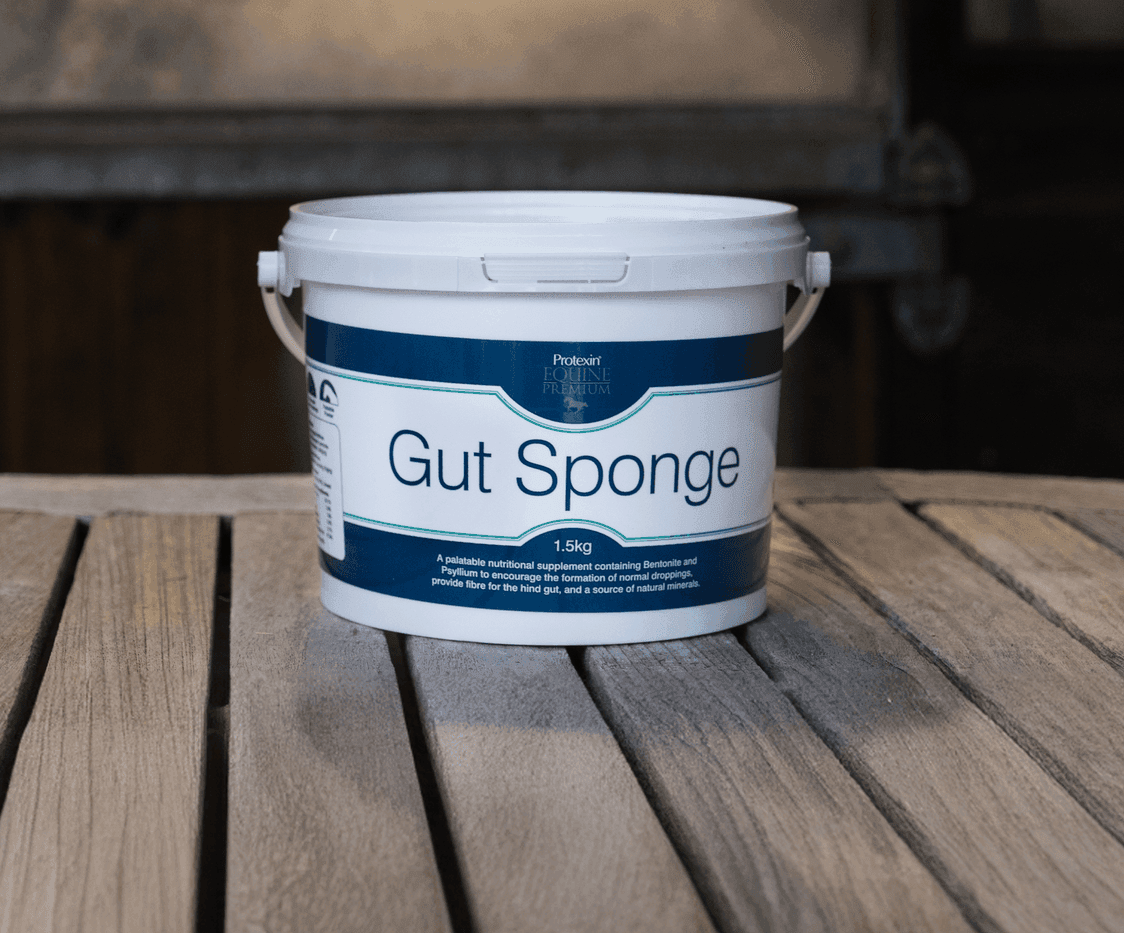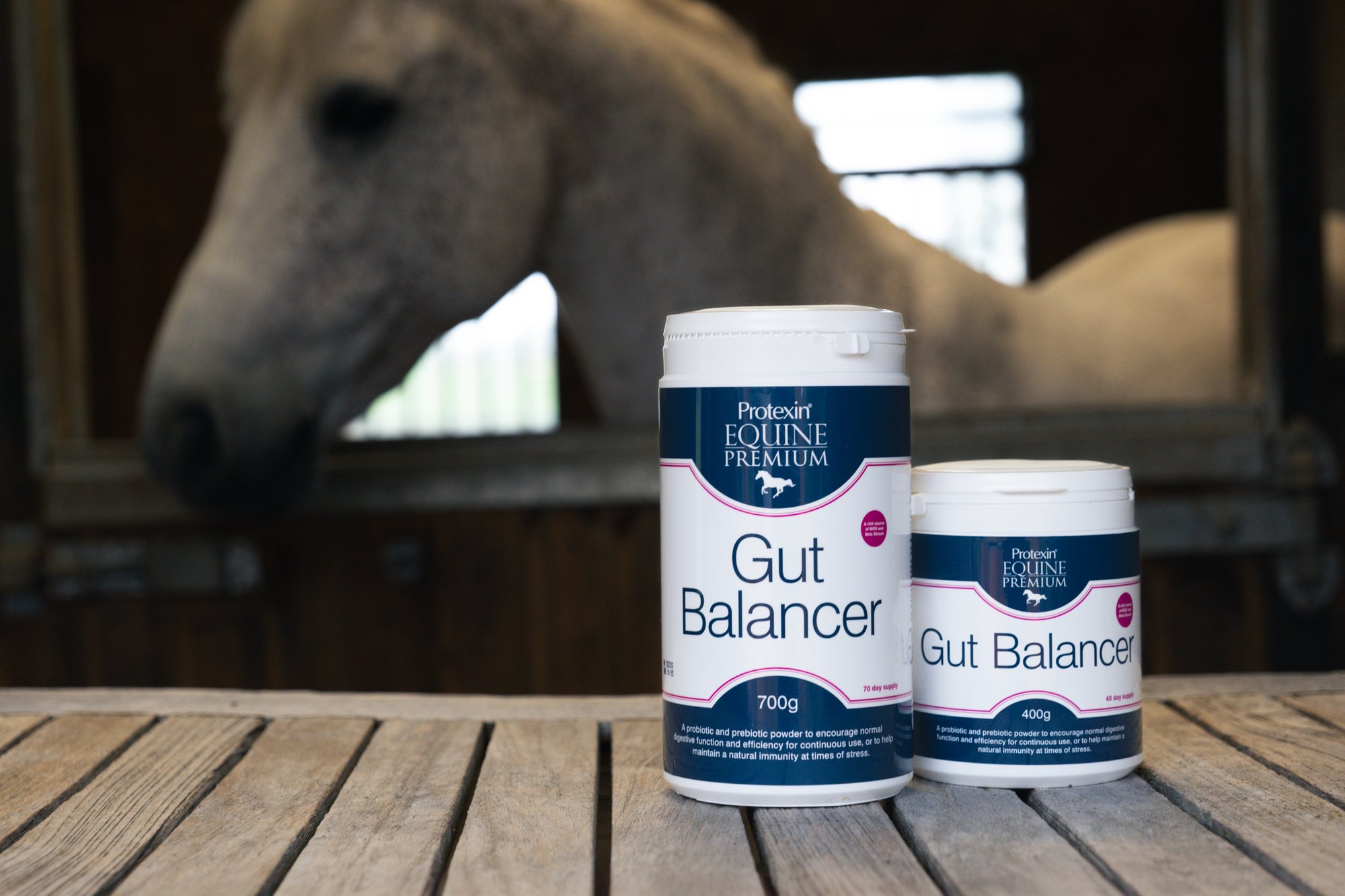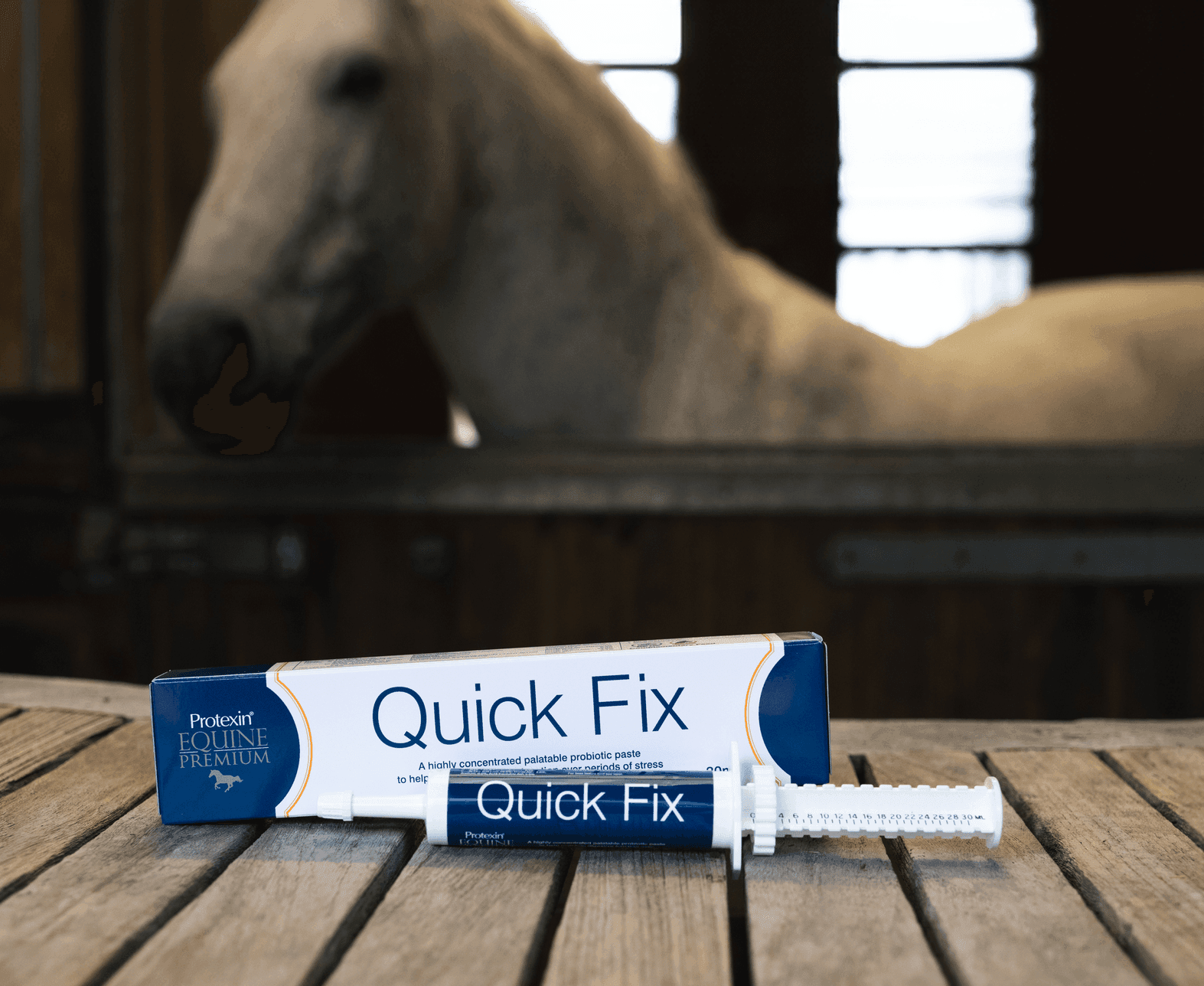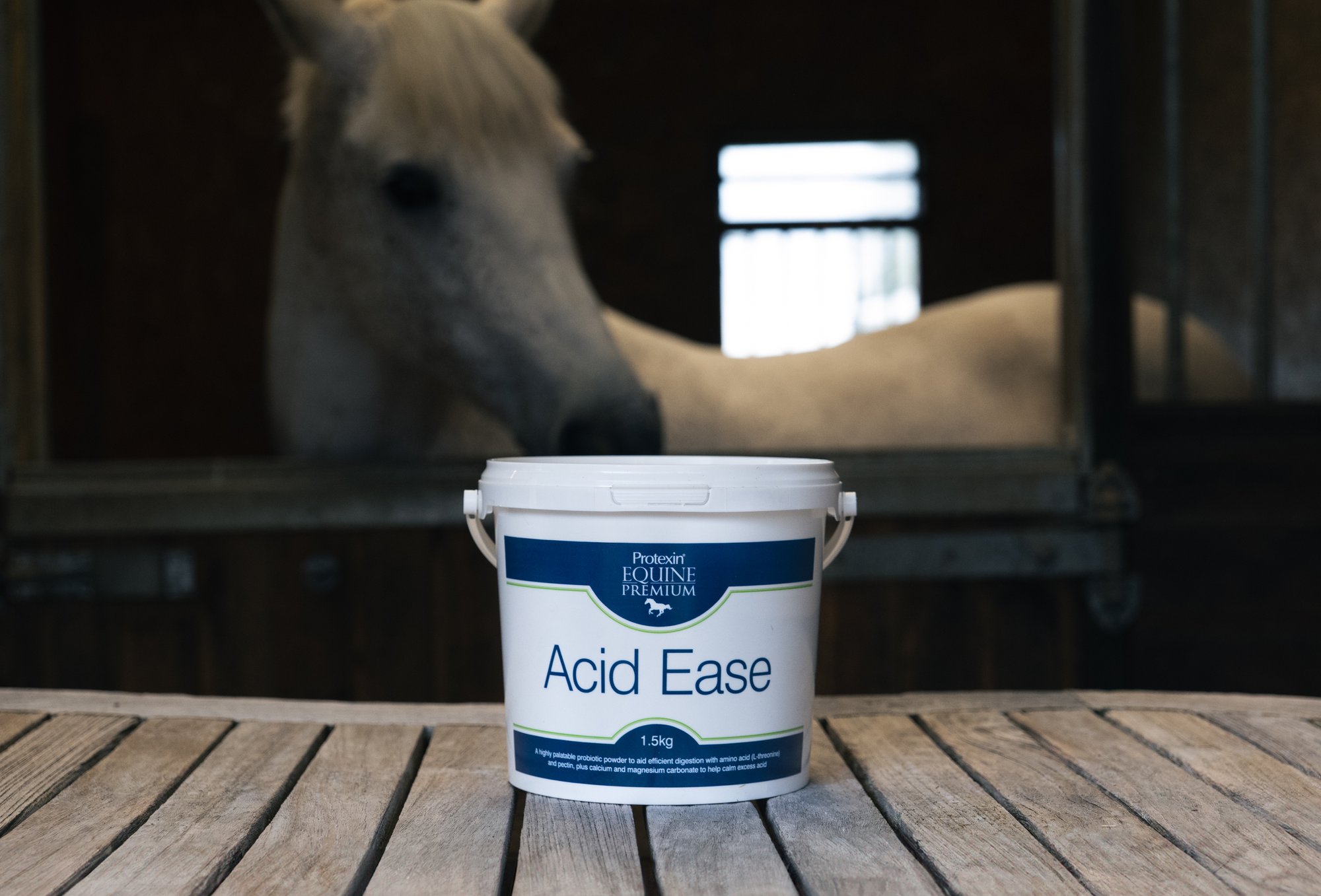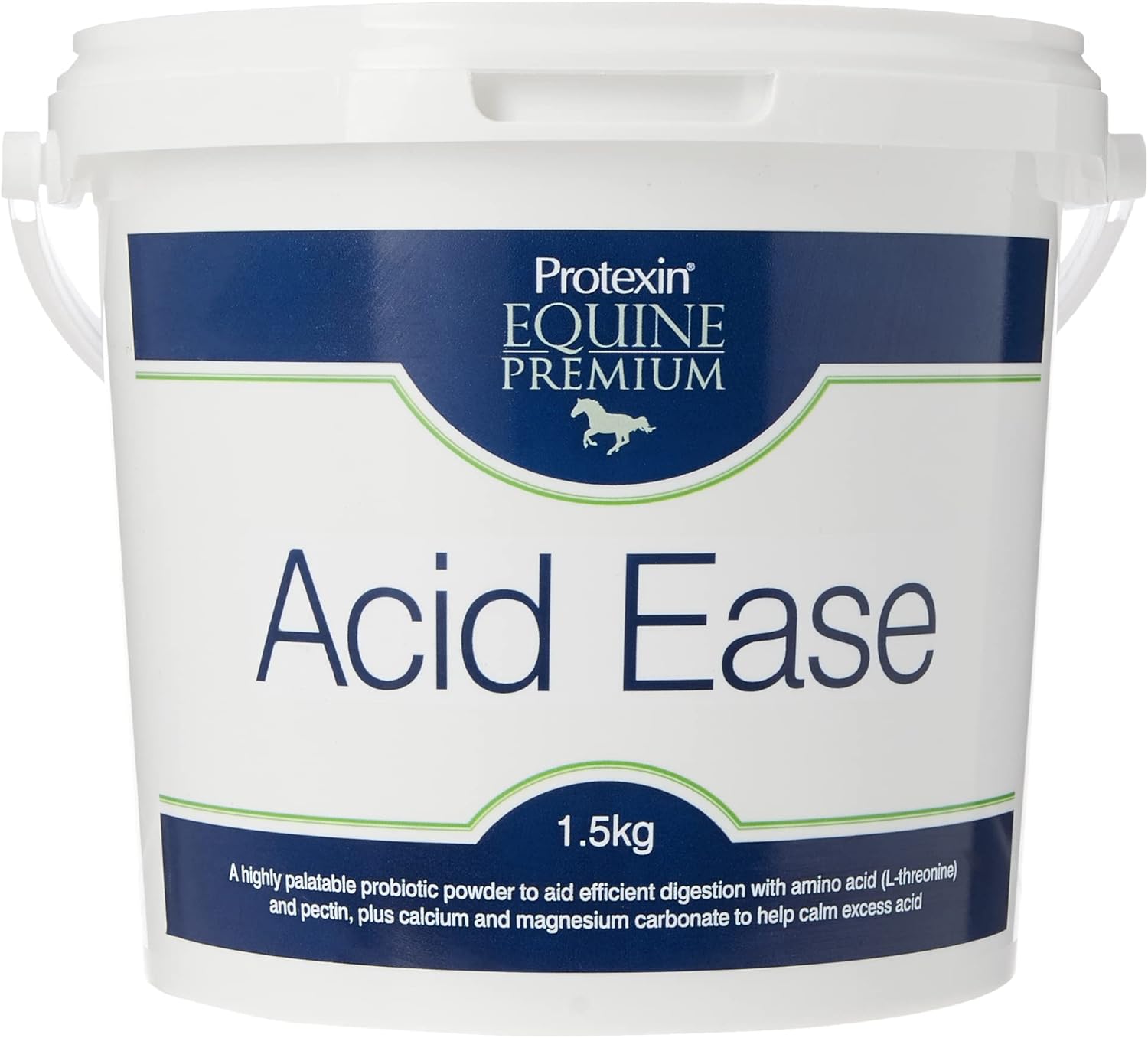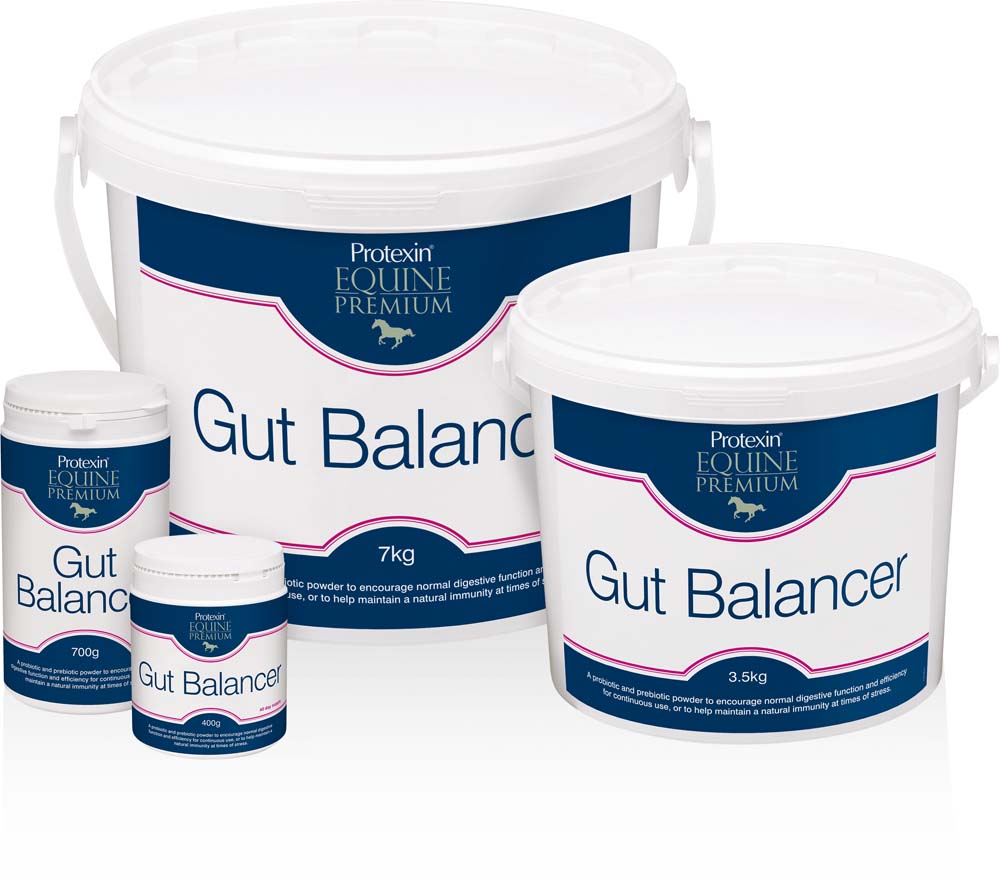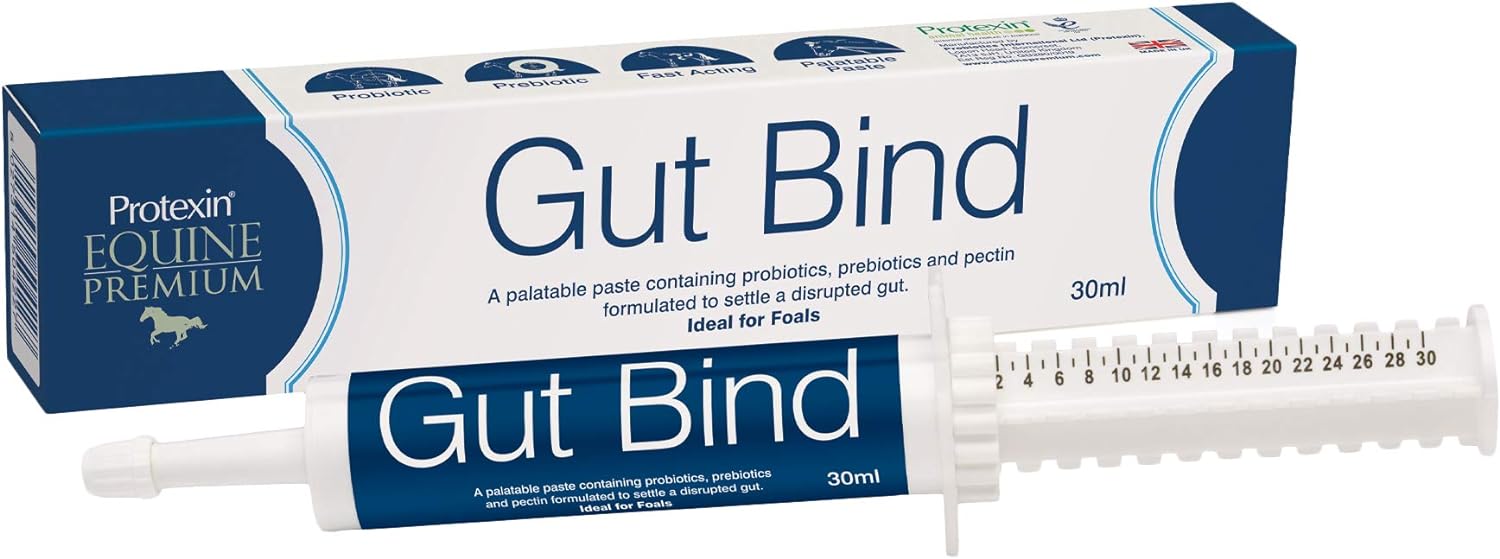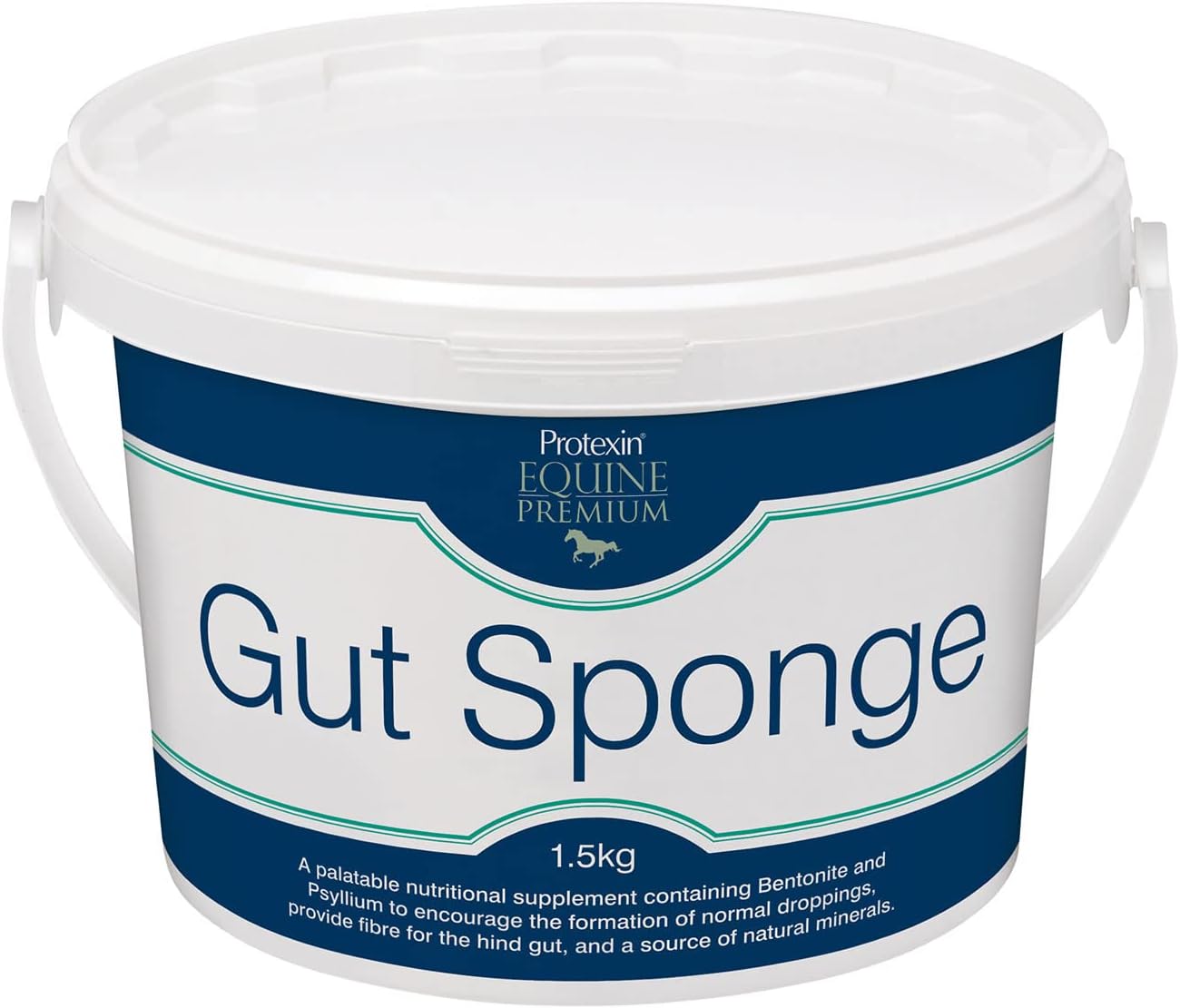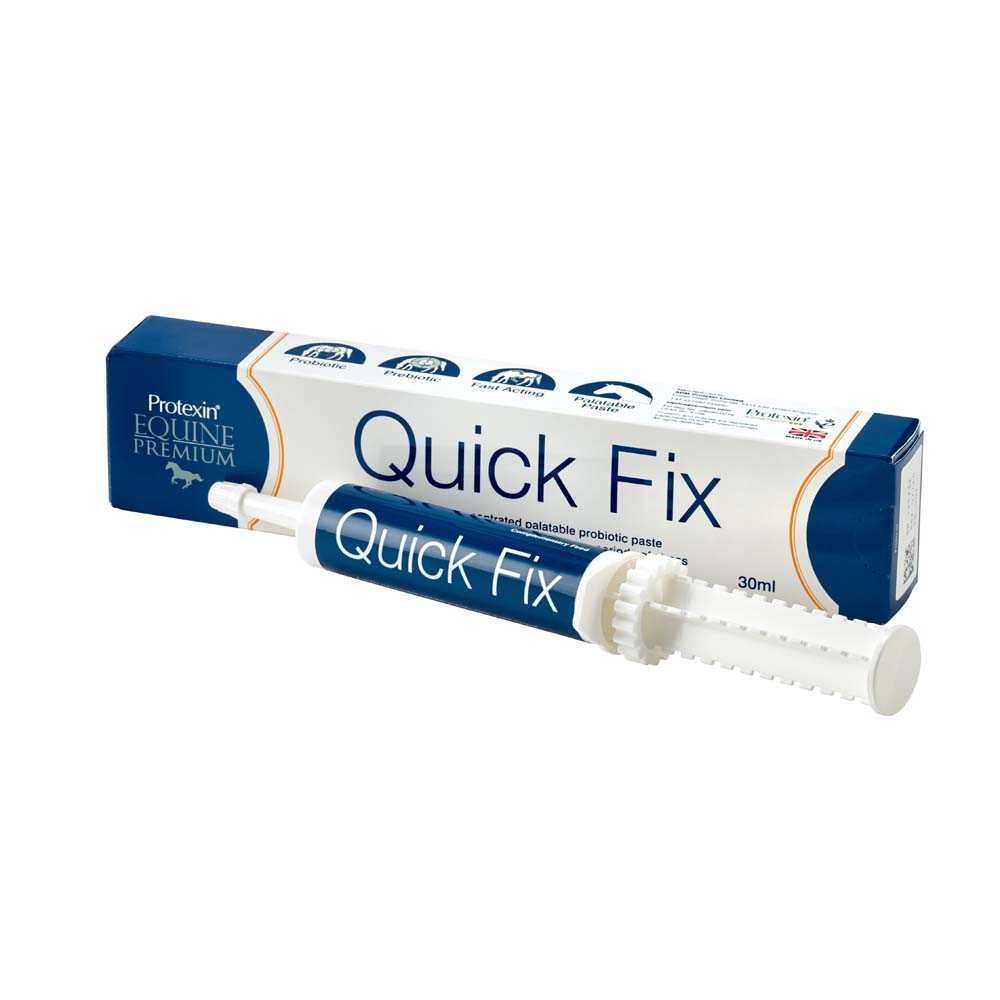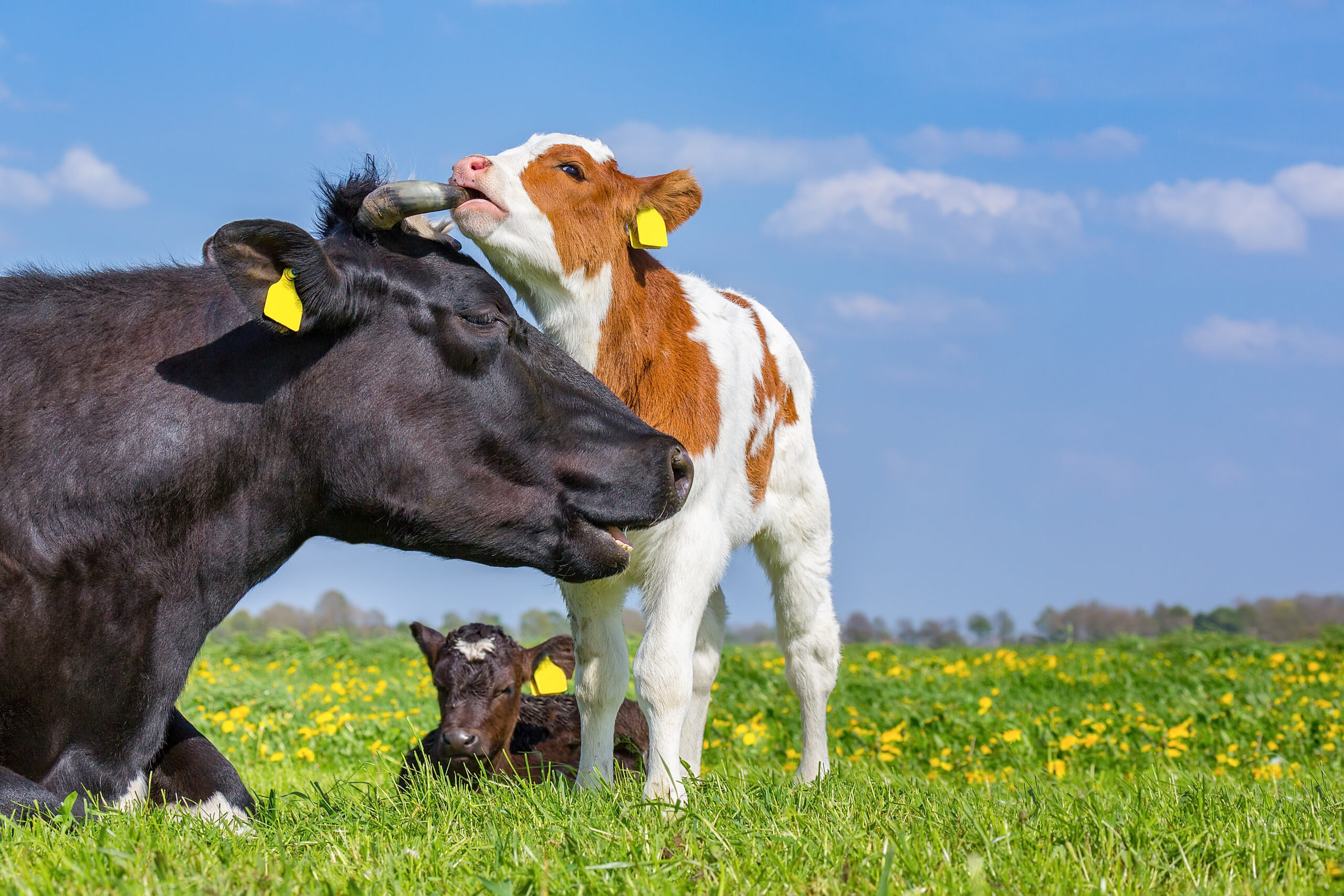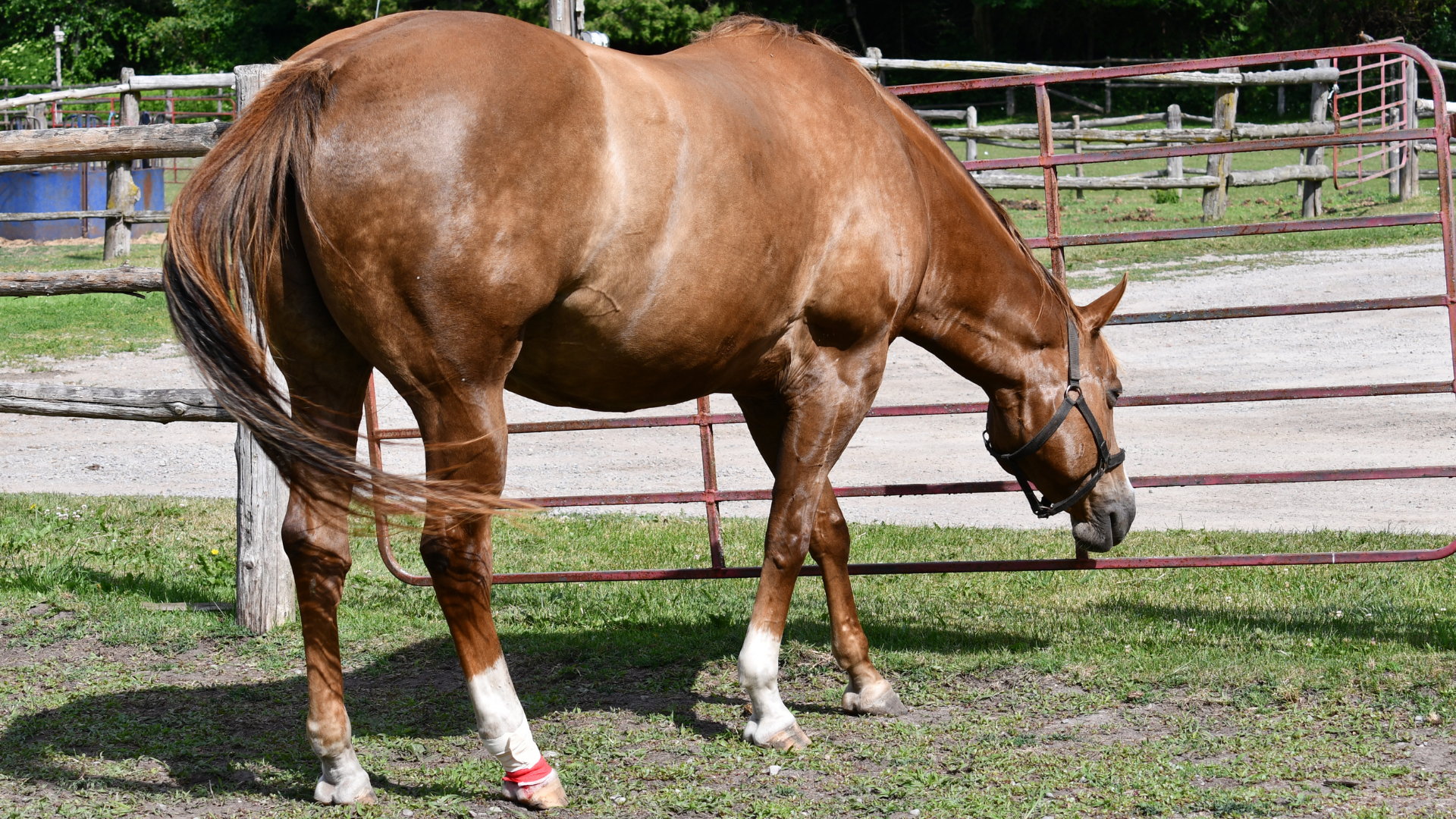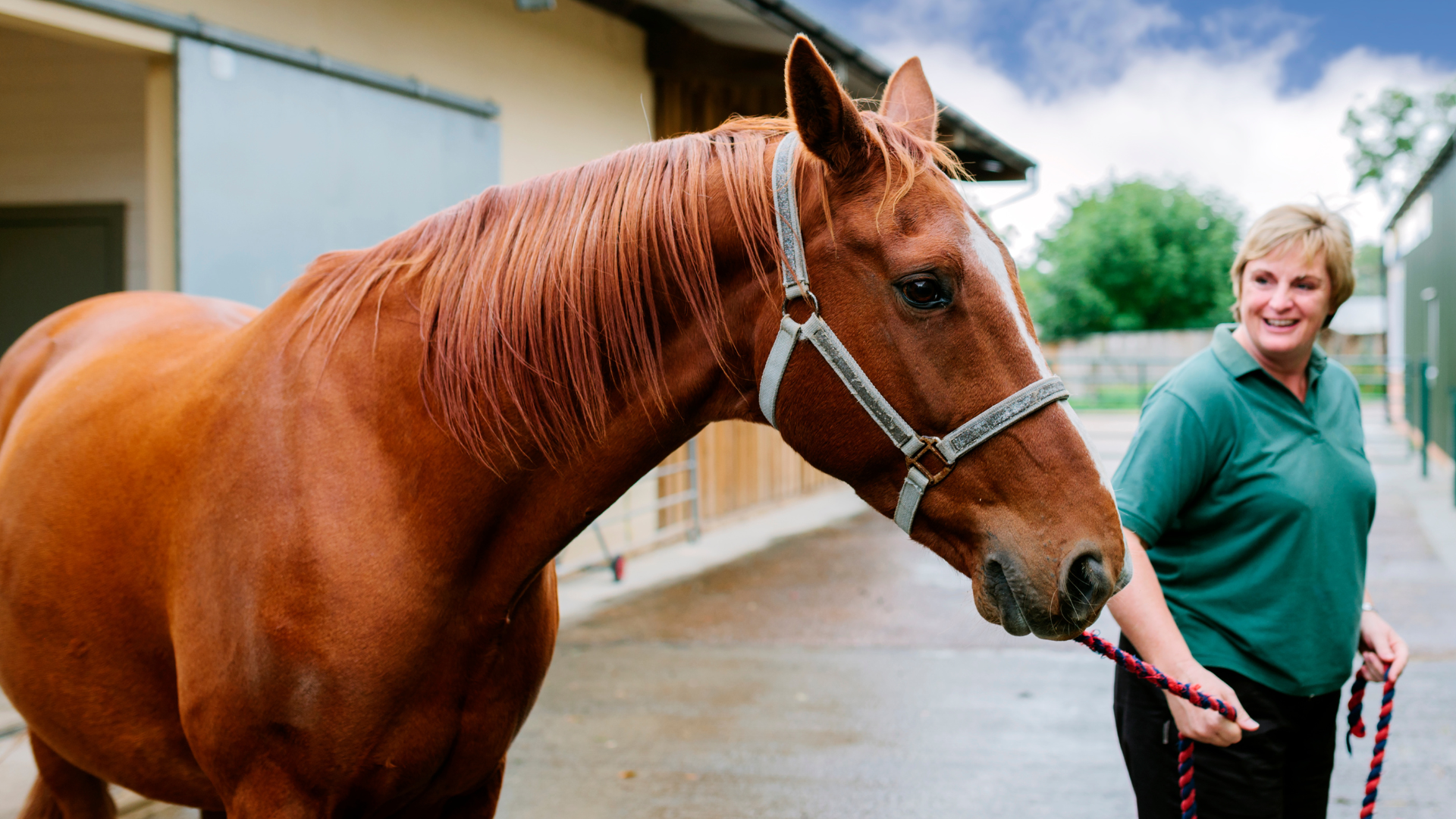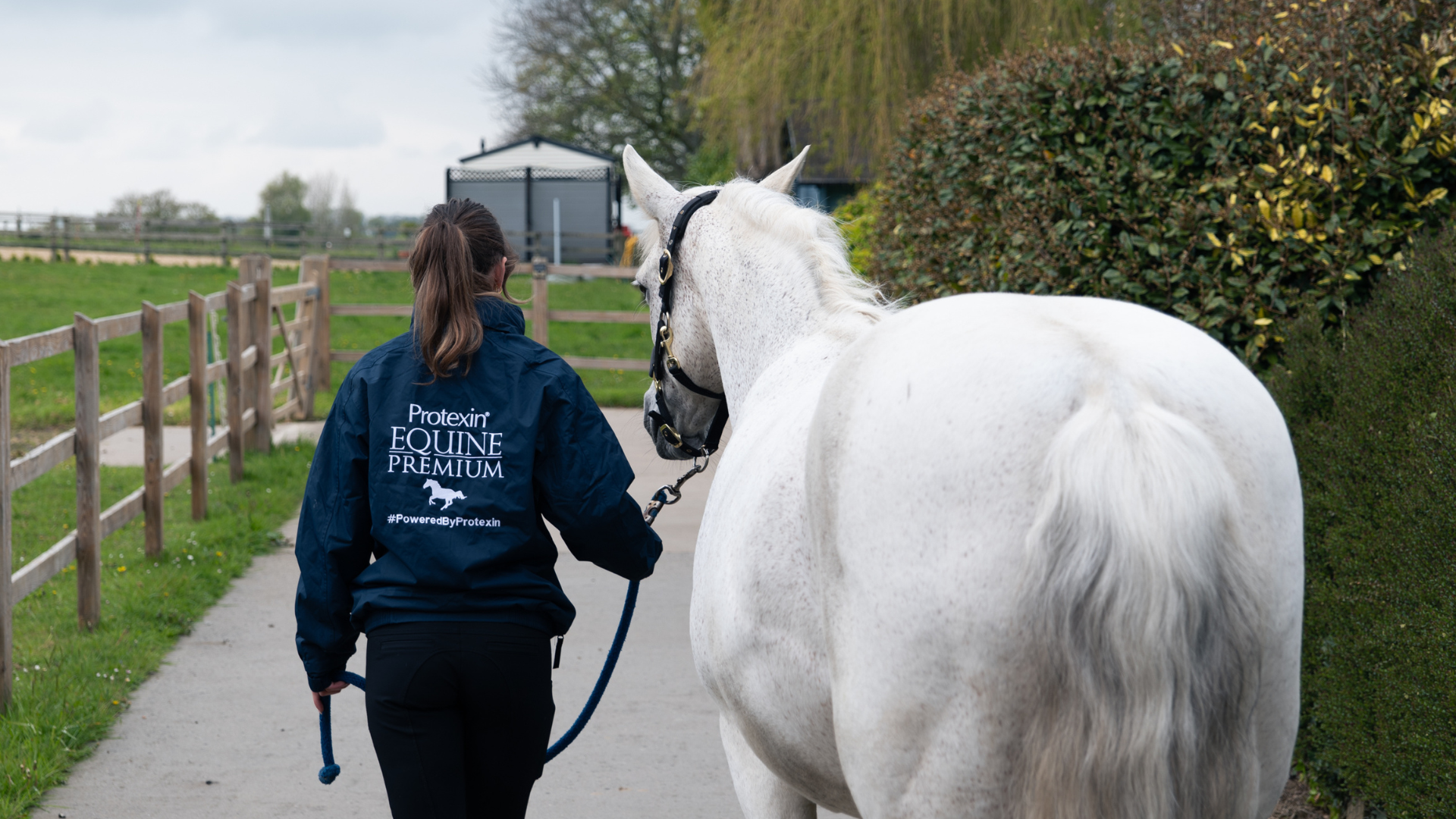
By Rupert Dyhouse – Veterinary International Technical Manager, Protexin Equine
As with our human and companion animal counterparts, the interest (and research) into the equine microbiome has significantly boomed in the last 10 years. As a result, not only are horse owners more inquisitive and better informed about all things microbiome-related, but they are increasingly looking for appropriate support for this system – whether that be diet, pharmaceutical or nutraceutical.
These conversations may often be had between vets and owners in the transition between summer and winter, when various factors may have influence on, or be influenced by, the microbiome.
The equine gastrointestinal microbiota (the collection of micro-organisms within the microbiome) is influenced by a range of factors such as nutrition and management (diets, supplements, exercise), medications (e.g. antibiotics and anthelmintics), animal-related factors (age) and pathological conditions, as well as stress factors 1.
The composition of the microbiota alters throughout the year. In one study of grazed horses, there is a variation associated with changes in the grass, additional forage and with differing weather conditions2, all things that typically happen as we go into the winter months.
Dietary and environmental changes
We will often see significant diet changes around this seasonal transition period, due to an increase in housing and a reduction in both pasture quality and grazing time. The horse may become stressed by the increase in stabling as well as the possible mixing with a different cohort of both horses and owners in their stable yard or barn.
Owners may also choose to ramp up exercise regimes, such as National Hunt racehorses or sport horses competing on the indoor circuit. In addition, many of these events will involve some degree of transportation, which has been shown to impact the equine microbiome in a very short space of time3.
This range of changing factors may have an implication on the microbiome and may lead to the potential to induce an unwanted dysbiosis4 – an imbalance of the gut microbiota, shifting away from the ‘status quo’ of the typical composition of the microorganisms in its gut. Dysbiosis of the gut can have a range of negative implications on horses and ponies, both in the short and long term.
Veterinary guidance and support
As vets on the frontline, we often may have to not only treat the condition of the horse or pony we have been called out for but also advise the owner on management and feeding strategies, all to help improve or prevent an unwanted dysbiosis of the gastrointestinal microbiome.
As we are increasingly becoming aware of the interplay between the gut microbiome and all of these management factors, it may be worth considering a gut support product for these horses during the seasonal transition, as an adjunct to a treatment protocol or alongside a management/lifestyle/diet change.
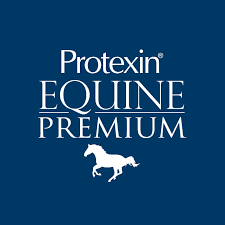
Protexin Equine
Protexin Equine offers a range of gut health supplements to help support horses and ponies during the autumn and winter months.
A palatable, peppermint-flavoured nutritional supplement formulated to support hind gut health and encourage the formation of normal droppings.
Key ingredients:
Montmorillonite (Bentonite) – a natural binding clay, which is highly adsorptive. Psyllium husk – not only does this act as a prebiotic, promoting the growth of health-positive gut bacteria and nourishing the cells of the gut lining, but it also is highly absorbent of excess water in the gut.
Use as a 1–2-week course, or longer under veterinary guidance. Gut Sponge can be used in conjunction with Gut Balancer.
Gut Balancer
A palatable probiotic and unique dual-source prebiotics for daily use.
Key ingredients:
Saccharomyces Cerevisiae probiotic – promotes fibre digestion and increases relative abundance of cellulolytic and lactate-utilising bacteria (i.e. health-positive species). Unique dual-source prebiotics Fructo-oligosaccharide (FOS) and Acacia – act as a food source for the microbiota.
A daily gut health powder which can be used in the short, medium or long term, depending on the indication of each case.
Quick Fix
A highly concentrated probiotic and prebiotic paste to help maintain digestive function over periods of stress, such as travel or worming.
Key ingredients:
Contains the same probiotic and prebiotic as Gut Balancer, in a convenient paste form.
Acid Ease
An antacid and gut supplement powder, to calm excess acid.
Key ingredients:
Calcium carbonate – to buffer excess acid. Kaolin, pectin, psyllium and L-threonine – all contribute towards the fibre mat and the coating of the stomach, to help soothe the lining and help prevent splashback of stomach acid. Saccharomyces cerevisiae probiotic – to provide additional hindgut support.
All of our products are included in the BETA NOPS assurance scheme.
Find out more…
For more details, including feeding guidelines and advice articles – www.equinepremium.com
If you have any further questions of when to use each product, then please don’t hesitate to contact the Protexin Veterinary Technical Team on technical@protexin.com.
More about the author:
Rupert Dyhouse, Protexin Equine Veterinary International Technical Manager
Rupert graduated from the University of Liverpool in 2016. After several years of mixed practice in the UK and New Zealand, he joined ADM Protexin to focus on microbiome-based solutions for the Vet sector. Rupert is interested in new developments in this sphere, including the gut-brain axis, and how changes in the gut microbiome can influence other body systems.
The article was originally posted in The Cube magazine, October 2024 issue. Click here to read the magazine.
